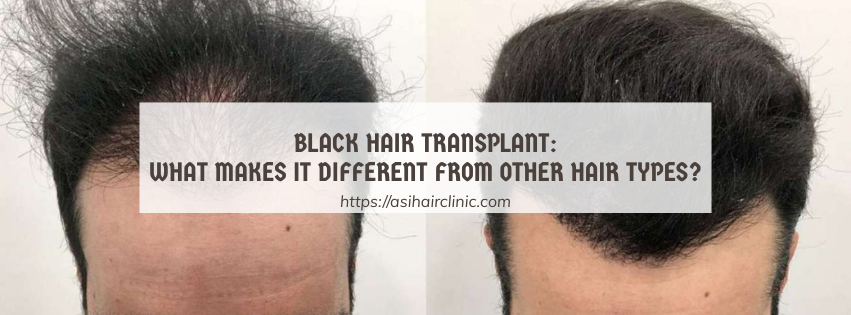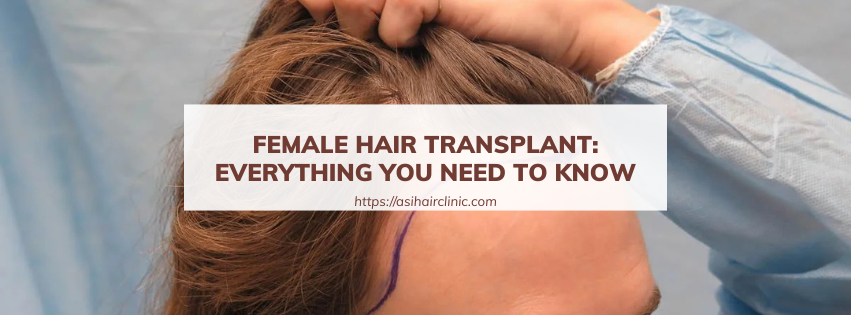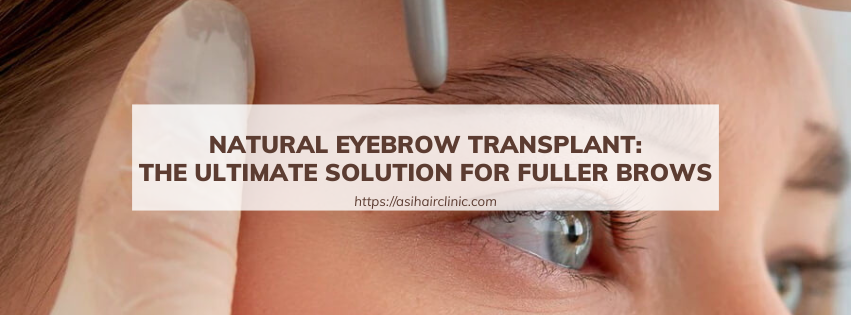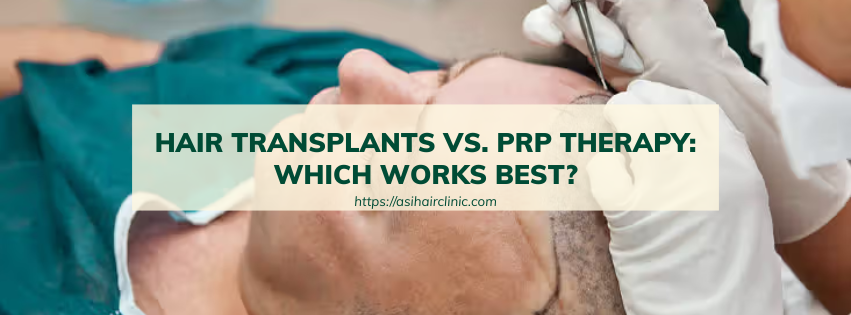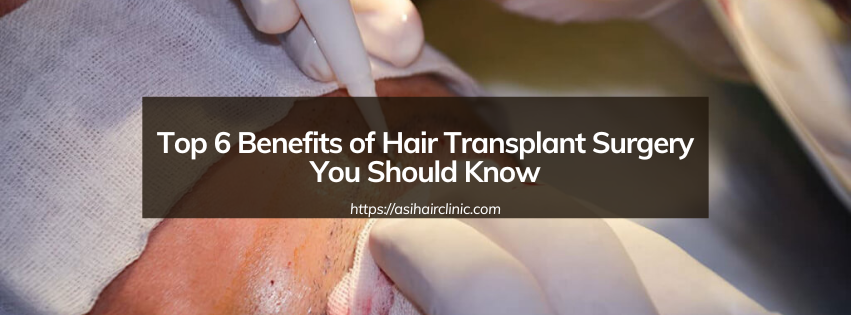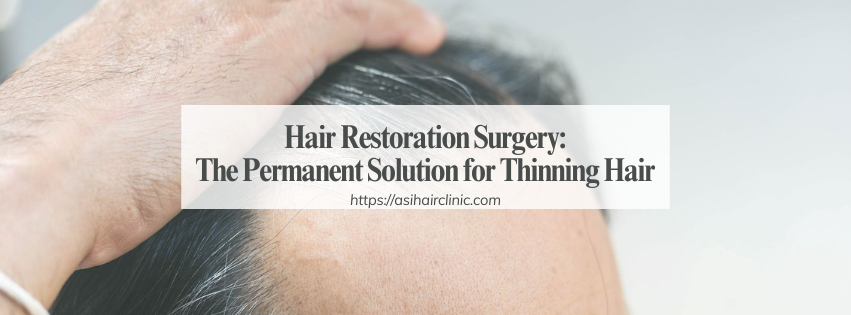How To Find The Best Clinic For Female Hair Transplant?
Female Hair Transplant is an increasingly sought-after solution for women experiencing hair loss, a condition often linked to societal expectations and personal identity. Hair is more than just strands on a scalp; it's a significant part of a person's attractiveness and self-worth. When women lose their hair, it can lead to feelings of vulnerability, decreased self-esteem, and emotional distress. However, thanks to advancements in medical science, women now have access to effective hair restoration techniques, including female hair transplant procedures. These methods provide an opportunity for women to regain not only their hair but also their confidence and sense of self. Yet, as with any medical procedure, the choice of clinic plays a crucial role in determining the success of the treatment. This article will explore essential factors to consider when seeking the best clinic for female hair transplants, offering guidance to ensure that the decision leads to successful outcomes.
1. Understanding Female Hair Loss: Causes and Solutions
Understanding the nuances of female hair loss sets the stage for making informed decisions regarding hair restoration. The process of evaluating potential clinics should be grounded in a solid understanding of the issues surrounding female hair loss, as well as the solutions available.
1.1. Patterns of Female Hair Loss
Hair loss in women often presents itself differently than in men. While male pattern baldness usually follows a defined pattern, female pattern hair loss (androgenetic alopecia) typically manifests as diffuse thinning across the crown and part lines. This gradual thinning can begin in a woman’s late teens or early twenties, making it crucial to recognize patterns early for effective intervention.
Aside from genetic predispositions, various external factors contribute to hair loss in women. Hormonal fluctuations during pregnancy, menopause, or as a result of conditions like polycystic ovary syndrome (PCOS) can significantly impact hair health. Additionally, stress, nutritional deficiencies, and certain medications may exacerbate hair loss, leading women to seek restoration options sooner rather than later.
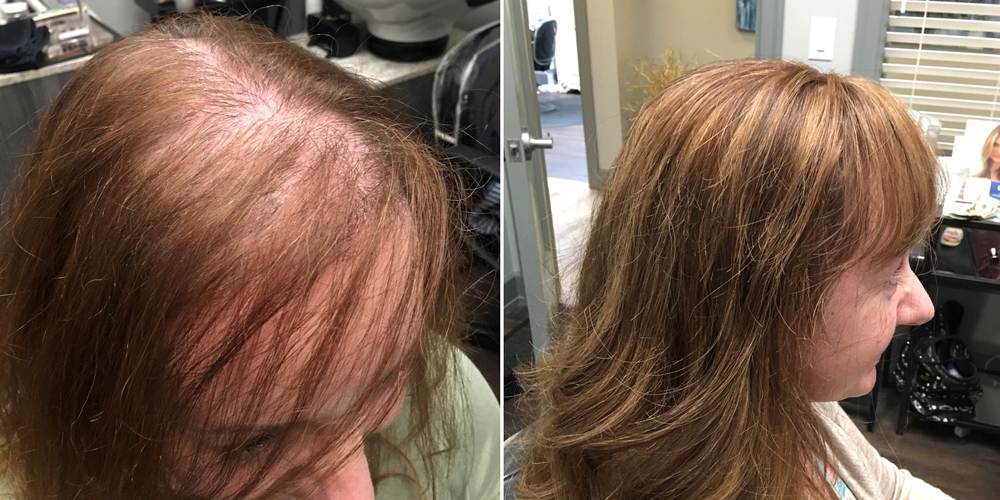
1.2. Available Transplant Options
When it comes to hair transplant techniques, two primary methods stand out: Follicular Unit Extraction (FUE) and Follicular Unit Transplantation (FUT).
FUE is a minimally invasive procedure where individual hair follicles are extracted from a donor area, typically the back of the head, and implanted into areas of thinning or balding. This technique is particularly favored among women due to its precision and the natural appearance it offers. Unlike FUT, which involves stripping a section of the scalp, FUE leaves no visible linear scarring, allowing for a more discreet recovery.
Before deciding on a procedure, it’s essential for women to consult with experienced surgeons to discuss individualized options. Each woman's hair type, extent of hair loss, and cosmetic goals will influence the chosen method, so thorough discussions with knowledgeable professionals are paramount.
1.3. Psychological Impact of Hair Loss
The journey through hair loss can take a heavy toll on mental health. Many women report feelings of anxiety, inadequacy, and embarrassment as they deal with thinning hair. This psychological impact underscores the importance of choosing a clinic that prioritizes a holistic approach to treatment. An ideal clinic addresses both physical and emotional concerns, providing support throughout the process, from initial consultation to post-operative care.
By understanding the complexities surrounding female hair loss and the solutions available, prospective patients can make better-informed decisions when selecting a clinic. A knowledgeable patient is an empowered patient, ready to take proactive steps toward restoring not just hair, but confidence.
2. Key Considerations When Choosing a Clinic
Selecting the right clinic for a female hair transplant requires careful evaluation of numerous factors. Each aspect plays a vital role in ensuring successful results while prioritizing patient safety and satisfaction.
2.1. Expertise and Experience
Choosing a board-certified surgeon with extensive experience specifically in female hair restoration is non-negotiable. Surgeons skilled in this niche understand the unique challenges posed by women's hair loss and can devise tailored strategies for optimal results.
Experience isn't solely about time spent in practice; it's also about specialized training. Inquire about the surgeon's education and certifications related to hair restoration techniques, particularly FUE. Ask for case studies that highlight previous successes with female patients exhibiting similar hair loss patterns, as these can provide valuable insights into the surgeon's capabilities.
Additionally, prioritize consultations with multiple surgeons to evaluate different perspectives. Each surgeon may offer unique insights and recommendations that can inform your decision-making process. It’s crucial that you feel comfortable and supported in your choice.
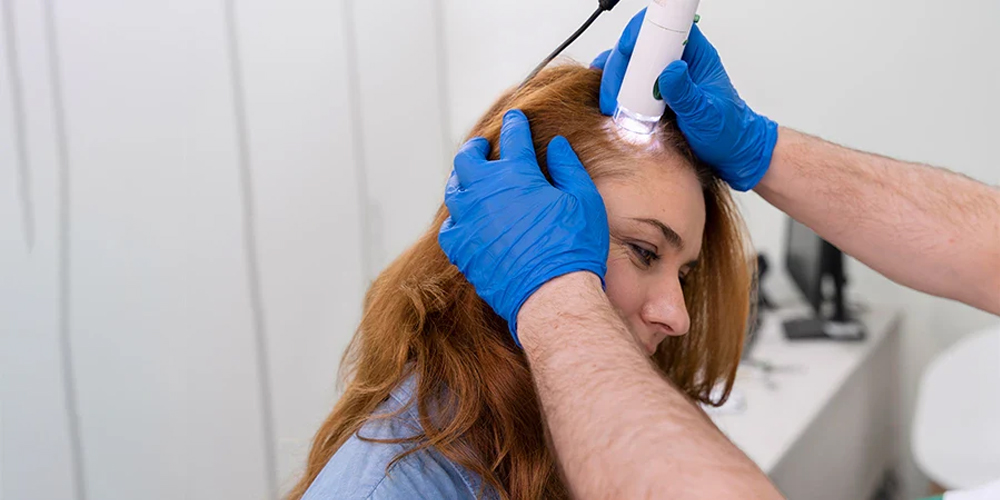
2.2. Clinic Reputation and Accreditation
Conducting thorough research into a clinic's reputation is crucial. Online reviews and testimonials provide firsthand accounts of patient experiences, shedding light on aspects such as care quality, comfort levels, and overall satisfaction. Look for feedback on platforms like RealSelf and Google Reviews, as they offer unfiltered insights into the clinic’s strengths and weaknesses. Aesthetic Hair Restoration is one of the reputable addresses chosen by many customers.
Furthermore, verify the clinic's accreditation by reputable organizations such as the American Board of Hair Restoration Surgery (ABHRS) and the International Society of Hair Restoration Surgery (ISHRS). Accreditation ensures adherence to high standards of surgical practices and patient care.
Patient referrals can also serve as a powerful tool in gauging a clinic’s reputation. If possible, connect with individuals who have undergone the procedure at the clinic you're considering. Their insights can help you gauge the reality of outcomes versus marketing claims.
2.3. Consultation Process and Communication
A comprehensive consultation is the cornerstone of a successful hair transplant journey. During this phase, the surgeon must gather information about your medical history, hair loss patterns, and desired outcomes. A well-structured consultation will allow both parties to establish realistic expectations for the procedure.
Managing expectations is essential; a reputable clinic should openly discuss what can realistically be achieved through hair transplantation, while addressing potential limitations and risks. Be wary of clinics that over-promise results or guarantee specific outcomes, as these may indicate questionable practices.
Effective communication goes beyond the initial consultation. Your surgeon should remain accessible and open to questions throughout the entire process. Feeling heard and understood fosters trust and eases the anxiety often associated with surgical procedures.
2.4. Technology and Techniques
As technology advances, so too do hair transplant techniques. Leading clinics leverage cutting-edge technologies to optimize results. Techniques such as follicular unit microscopes and robotic extraction tools enhance precision and efficiency during procedures.
Customized treatment plans are integral to achieving favorable results. A thorough assessment of your hair type, texture, and extent of loss should guide the design of a personalized strategy. Discuss the number of grafts needed to achieve desired density, as well as the clinic's approach to graft placement. This level of detail ensures that aesthetic considerations are met alongside clinical efficacy.
Incorporating advanced technologies demonstrates the clinic’s commitment to providing the best possible care. Research the tools and techniques utilized within the clinic to ensure that they align with current best practices in the field.
3. Post-Operative Care and Support
The period following a hair transplant is just as important as the procedure itself. Comprehensive post-operative care significantly influences the healing process and overall success of the transplant.
3.1. Clear Instructions
Following surgery, clear and detailed instructions for care are imperative. Patients should receive guidelines on wound management, medication usage, and activities to avoid during the initial healing phase. Reputable clinics prioritize educating their patients to minimize complications and enhance recovery.
Post-surgical care encompasses not only physical aspects but emotional elements as well. Maintaining open communication with the clinic during the healing process helps address any concerns or questions that arise. Clinics that encourage ongoing dialogue demonstrate a commitment to patient well-being.
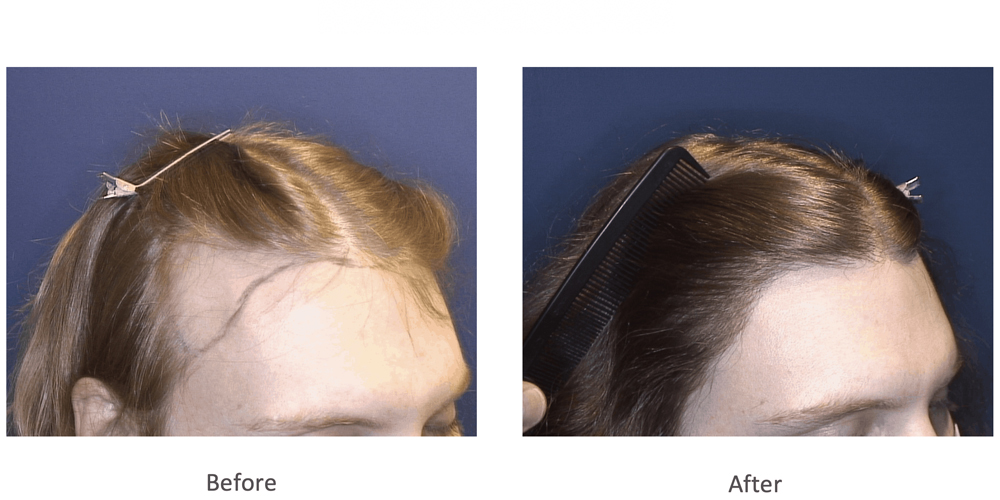
3.2. Follow-Up Appointments
Regular follow-up appointments are essential for monitoring recovery and addressing potential complications. These visits ensure that the healing process progresses as expected and allow the surgeon to assess the integration of transplanted hair follicles.
During follow-ups, patients can share any concerns about their recovery process, and the surgeon can provide reassurance and professional insights. This collaborative approach builds trust and reinforces the importance of a supportive healthcare relationship.
3.3. Ongoing Support
Consideration for ongoing support beyond the immediate post-operative period is essential. Some clinics offer resources or support groups for patients experiencing the emotional aspects of hair loss and recovery. Engaging with others who have undergone similar journeys can provide invaluable encouragement and camaraderie.
Establishing a long-term relationship with your chosen clinic fosters a sense of security and allows for continued care as needed. Whether through routine check-ins or special events, remaining connected with your surgeon and clinic team can enhance the overall experience.
4. Cost and Patient Safety Considerations
The financial implications of a hair transplant cannot be overlooked, nor can the critical aspect of patient safety. Understanding costs and ensuring safety protocols are in place are vital components of the clinic selection process.
4.1. Transparent Pricing
A reputable clinic should provide transparent pricing structures that outline all associated costs, including pre-operative consultations, the procedure, post-operative care, and any necessary follow-up visits. Unforeseen expenses can be a source of stress, so clarity in pricing helps mitigate surprises.
Inquiring about financing options is also prudent, especially since hair transplant procedures can represent a significant investment. Many clinics offer flexible payment plans that accommodate varying budgets, allowing patients to pursue treatment without financial strain.
4.2. Patient Safety Protocols
Safety is paramount during any surgical procedure. Ensure that the clinic maintains a sterile environment and adheres to rigorous infection control protocols. A facility that prioritizes cleanliness and has measures in place to prevent complications speaks volumes about its commitment to patient care.
Understanding emergency preparedness plans is equally important. Verify that staff is trained to handle emergencies that may arise during or after a procedure. A clinic with established protocols showcases a dedication to maintaining a safe environment.
4.3. Red Flags to Avoid
While seeking the ideal clinic, be aware of red flags that may signal subpar practices. Avoid clinics that pressure you into making hasty decisions or those that promote excessively low prices compared to industry standards. Such discounts may indicate compromised quality or inexperienced practitioners.
Furthermore, steer clear of clinics that promise unrealistic outcomes or guarantees. Transparency, honesty, and ethical practices should define any reputable establishment.
Conclusion
Navigating the journey to finding the best clinic for a female hair transplant can seem daunting, yet it is a crucial step towards reclaiming confidence and enhancing quality of life. By understanding the intricacies of female hair loss, exploring key factors in clinic selection, and recognizing the importance of patient care, individuals are better equipped to make informed decisions.
LATEST POSTS

